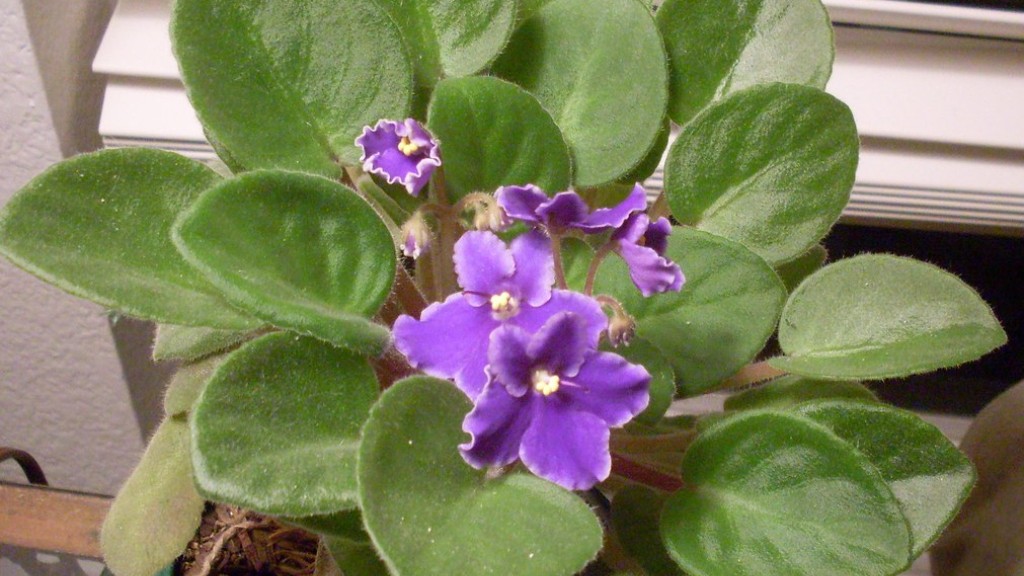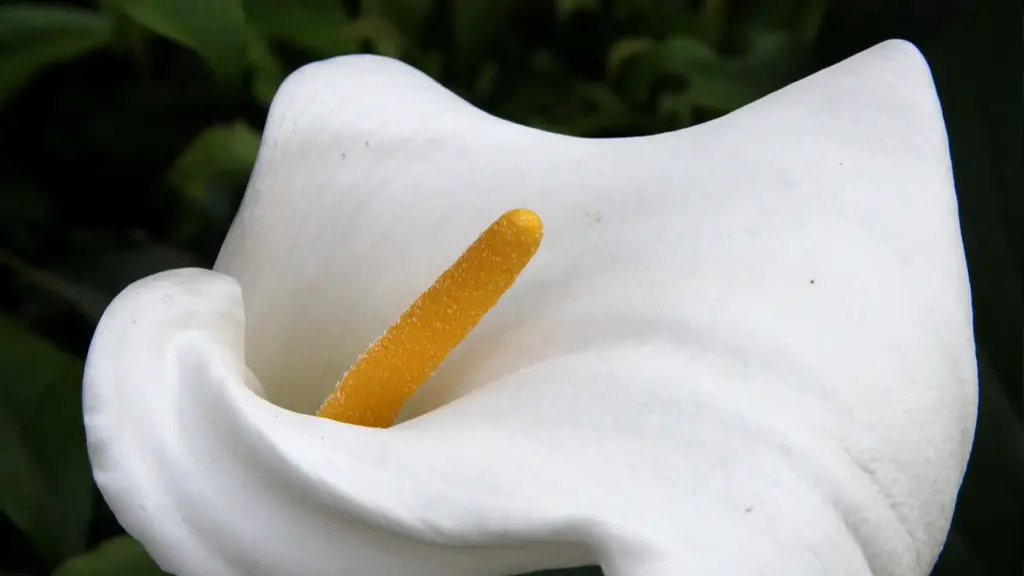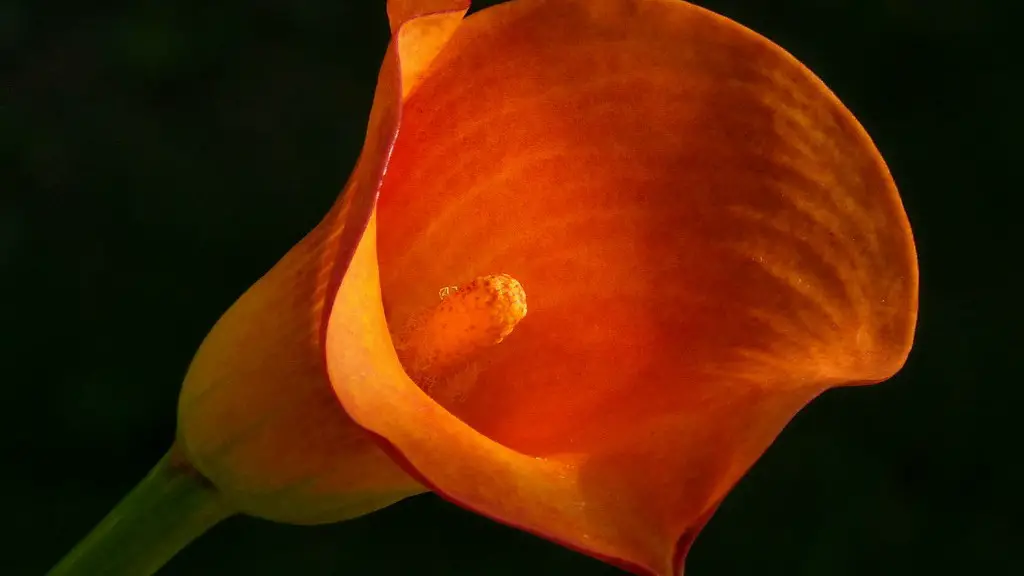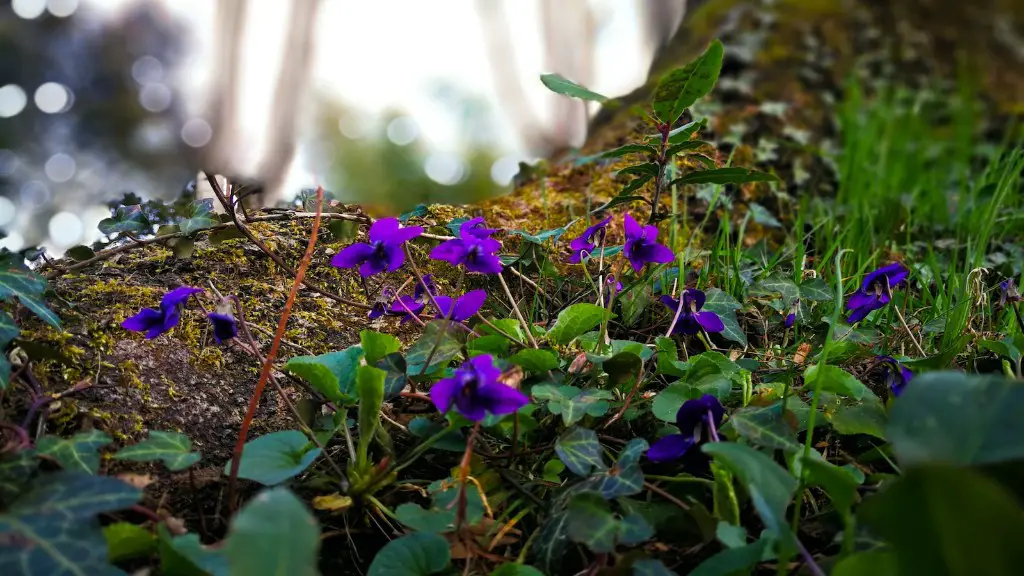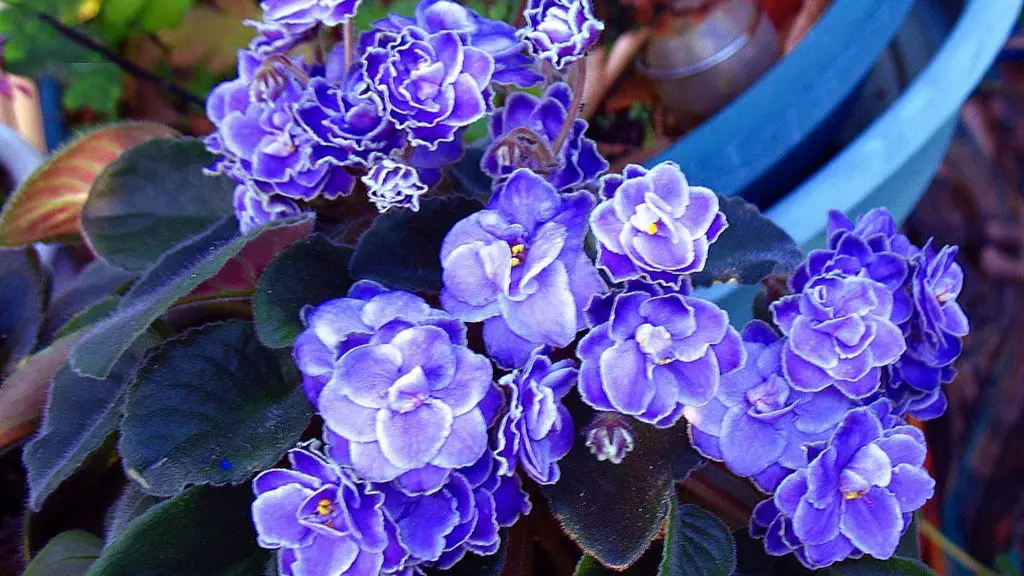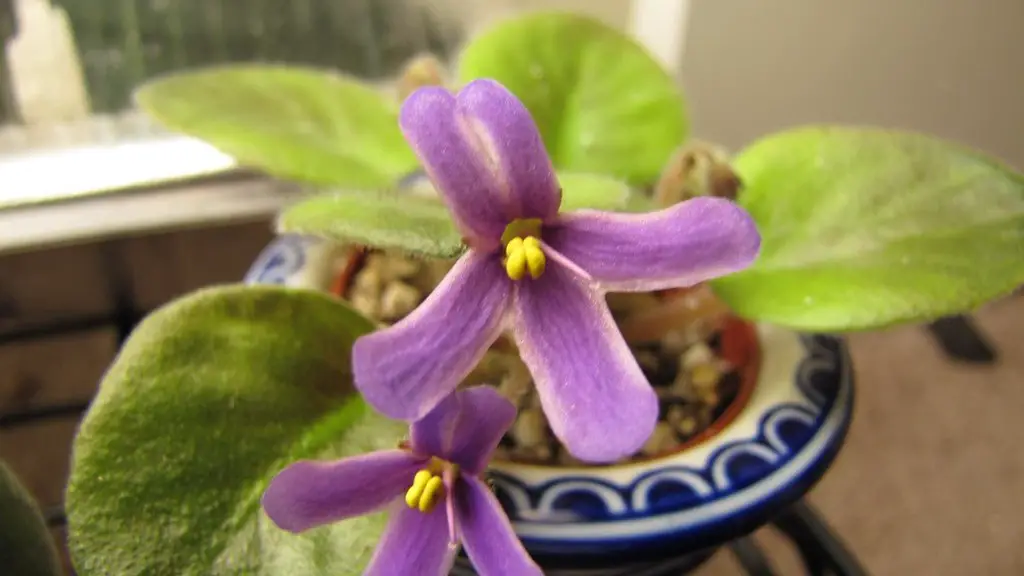African violets are a popular houseplant because they are easy to grow and care for. They are also known for their beautiful flowers. Most African violet plants will bloom if they are given the right care. Here are some tips on how to get blooms on African violets:
1. African violets need bright, indirect light. If you are growing them indoors, place them near a window where they will get plenty of light.
2. African violets need to be kept moist, but not too wet. Water them when the soil feels dry to the touch.
3. African violets need to be fertilized regularly. Use a weak solution of fertilizer every two weeks.
4. African violets need to be kept at a consistent temperature. Avoid placing them near drafts or heat sources.
5. African violets may need to be repotted every year or two. Use a pot that is only slightly larger than the one they are currently in.
By following these tips, you should be able to get your African violets to bloom.
To get blooms on African violets, you need to start with a healthy plant. Make sure to water the plant regularly and fertilize it monthly. Once the plant is blooming, you can deadhead the flowers to encourage more blooms.
How do you encourage African violets to bloom?
If you’re having trouble getting your African violets to bloom, it’s likely because they’re not getting enough light. African violets need indirect sunlight, as direct sunlight can burn their leaves. Choose a north- or east- facing window for best results, and keep plants away from cold glass. Rotate the pot once a week so all leaves receive light.
African violets typically bloom several times a year, with each bloom lasting several weeks. If you remove the old flowers (known as disbudding), new flowers should appear within 6 to 8 weeks. The key to getting African violets to bloom often is to provide them with the right growing conditions, including plenty of light and humidity.
How often does an African violet bloom
African violets can bloom nearly year-round if you are able to provide the correct conditions. Each bloom lasts for about 2-3 weeks.
Epsom salt is a type of magnesium sulfate that is often used as a fertilizer for plants. It can provide them with essential magnesium and sulfur, two minerals that are needed for produce beautiful blooms and healthy foliage. To use it, mix one and a half teaspoons of Epsom salt in a quart of tepid water and swirl to dissolve. Then water your African violets (below the leaves) with this solution once a month.
Why is my African violet not blooming?
If you want your African violets to bloom well, you need to make sure they’re getting enough light. They prefer bright, indirect sun, so if they’re not getting enough sunlight they’ll stretch for the light and produce few or no flowers. Too much sun can burn the leaves, so an east-facing window is ideal, especially with a sheer curtain to block the sun’s harshest rays.
This is a great product to use on all varieties of African violets and blooming houseplants. It really helps them to thrive and look their best.
How often should a African violet be watered?
A wicking system is a system where water is drawn up from a reservoir into the soil of your plant. This allows the plant to only take in as much water as it needs, and never more. This is a great way to make sure your African violets are never over watered.
If you want your plants to have the best color and blooms, grow them in bright, indirect light. The best location for this is a plant stand three feet away from a west- or south-facing window. Plants will still grow when situated right beside north- or east-facing windows, but leaves will be thin and spindly, and plants less likely to bloom.
What month do violets bloom
Wild violets are considered a weed by some because of their aggressive behavior.
One of the best ways to fertilize African violets is to do it once a week with a mild fertilizer. A balanced formula like a 20-20-20 or a slightly more phosphorus-heavy one like a 15-20-15 will usually work best in most situations.
Are coffee grounds good for African violets?
Coffee grounds are slightly acidic and contain nitrogen, which helps plants grow healthy foliage. Occasionally sprinkling used coffee grounds on top of your African violet potting soil can be good for the plant.
African violets are a beautiful and popular plant that is easy to care for. They do best in a light, porous, aerated and well-drained potting mix that is kept moist, but not soggy. Position them indoors in bright light, but avoiding direct sun, away from drafts and air-conditioning. They will flower all year round, but mainly in spring and autumn.
Should African violets be watered from the top or bottom
Some African violet growers prefer to water from the bottom, while others find that watering from the top works just as well. It is important not to use cold water; lukewarm or warm is preferred. If you water from the top, be careful not to get water on the leaves when the plant is in the sun; this is to avoid leaf spots.
Plants need nutrients to bloom, and Miracle-Gro Blooming Houseplant Food provides those nutrients. This formula is designed to instantly feed all blooming houseplants, including African violets. Simply apply it directly to the soil or mix it with water, and apply it once a week.
Is baking soda good for African violets?
African violets are susceptible to powdery mildew, a common fungal disease. If your plants are infected, try spraying them with a baking soda solution. You can also spray the air around the plants with a household disinfectant. Be careful not to get too much spray on the leaves, as this can damage them.
To avoid this, make sure you only water your African Violet when the soil is dry to the touch. If you think you may have over-watered your plant, allow the soil to dry out completely before watering again.
Conclusion
To get blooms on African violets, you will need to fertilize them regularly and provide them with plenty of light. water them well, but don’t allow the soil to become soggy.
The best way to get blooms on African violets is to provide them with bright, indirect light and keep the soil evenly moist. Fertilizing monthly with a water-soluble fertilizer formulated for blooming plants will also help encourage blooms.
